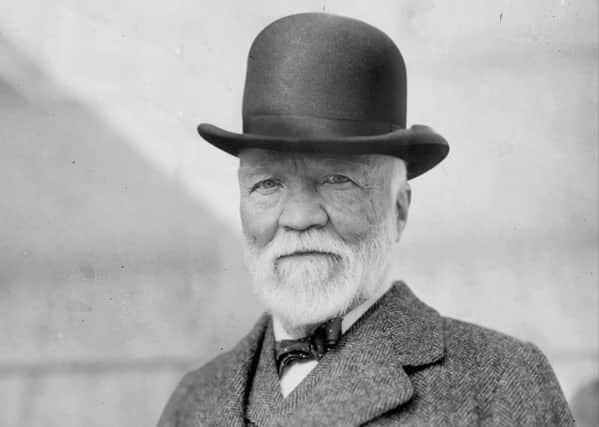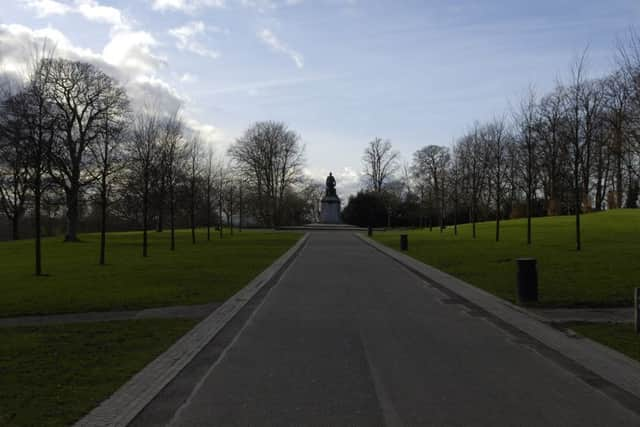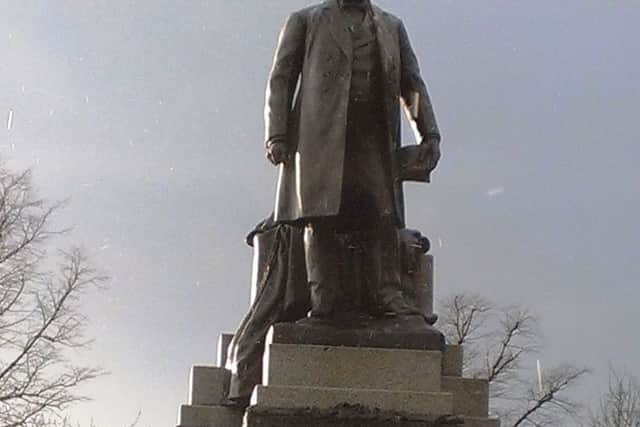Andrew Carnegie’s millions are still making a difference


Back then it was a private estate and the future millionaire industrialist would have to avoid any gamekeeper employed to ensure locals were kept out.
Carnegie would go on to purchase the Glen, as it is known locally, in 1902 and gift it to the people of the town, where it remains one of the finest urban parks anywhere in the UK.
Advertisement
Hide AdIt’s fitting then that one of the 22 charitable foundations established by the Scots-American philanthropist in his lifetime is based in a purpose-built office overlooking the estate.


The Carnegie UK Trust was founded in 1913 and tasked with the “improvement of the well-being of the masses of the people of Great Britain and Ireland by such means as are embraced within the meaning of the word ‘charitable’”.
It was gifted $10,000-worth of bonds in U.S. Steel, the world’s first billion dollar company, created when Carnegie merged his original business with two competitors in 1901.
That original endowment is now worth around £40 million, and it is down to chief executive Martyn Evans, a staff of 15 and a board of trustees to ensure the money is put to good use.
Carnegie trusts were famous for building libraries but now have different priorities.


“We took a decision to no longer be a grant maker,” said Evans in an interview with The Scotsman. “Instead, we are an operating trust - which means that we do work ourselves on public policy issues.
Advertisement
Hide Ad“We cannot be, because of how the world has changed in the last 100 years, a major funder of public institutions. It’s not possible. Even our resources pale in significance compared to the Big Lottery or government.
“The amount of money that is available these days in terms of public finance, and in terms of grant finance from the Big Lottery, is very significant.
Advertisement
Hide Ad“So a relatively small endowed organisation has to work out how it can offer best value. The decision was taken that we wouldn’t add value by being a small grant-maker - we would be better off looking at policy issues and working through advocacy to try and persuade people of a different way.”
Evans was appointed in 2009 having worked previously as director of the Scottish Consumer Council and Shelter Scotland.
“I spent about 20 years in the voluntary sector,” he said. “Two things attracted me to the trust. One is it has an endowment - so it can make independent decisions on funding. One of the great challenges of the voluntary sector is raising income. It is really challenging and can be exhausting.
“So it was a privilege to join an endowed organisation which could make its decisions. I was also attracted to an organisation that had a 100-year history.”
The new chief executive was tasked with a six-month review of the trust’s work to judge how effective it was. A new five-year plan was adopted and took effect from January 2011, refocusing the trust away from large-scale commissions and on to more policy-focused issues.
“I think the general public would see our work in policy terms,” Evans continued. “As an operating trust we want to change minds and change lives through public policy debate, policy issues. With it, we also do competitions and we make small grants for a whole range of innovative voluntary organisations.”
Advertisement
Hide AdThe future of town centres - especially in places the size of Dunfermline - is one area in which the trust is already making a difference.
It offers short-term leases, maintenance grants and mentoring to young entrepreneurs willing to open businesses in town centres.
Advertisement
Hide AdThe scheme, now in its third year, began in Dunfermline and has now been rolled out across eight locations across the UK.
“Part of our thinking is that because we have been set up by an entrepreneur, as many successful foundations have been, we have to re-find the role of entrepreneurship in dealing with social problems,” Evans said.
“We support young people with new and innovative ideas for shops in town centres to be able to try out their plans.
“It’s trying to find new ways to bring enthusiasm and new ideas into town centres, because they are struggling to find a role.”
How would Andrew Carnegie view the trust work’s in 2015? Evans is confident he would recognise that its founding principles were still at work.
“Carnegie required his trustees - and he took a lot of effort on this - to make their own decisions as circumstances change,” he said.
Advertisement
Hide Ad“He was quite a progressive thinker, to be honest. He would be pleased the trustees take their responsibilities seriously and review what they are doing and ensuring it is relevant to the 21st century.
“I think he would be astonished at the pace of change over the last 100 years, but I think he would pleased there remains 22 Carnegie organisations around the world - mostly in America - but three here in the United Kingdom.”